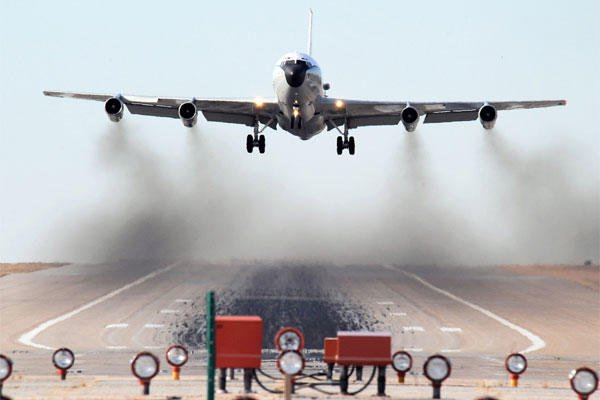Officials with U.S. Pacific Command concluded the two Chinese J-10 jets that intercepted an Air Force RC-135 spy plane during a routine patrol over the East China Sea were flying unsafely and improperly, but not being intentionally provocative.
In a statement released Wednesday by the command, officials said the Defense Department planned to address the problem with Chinese authorities using appropriate diplomatic and military channels.
The intercept, officials said, was unsafe because one of the Chinese jets approached the American aircraft at an excessive rate of speed.
"Initial assessment is that this seems to be a case of improper airmanship, as no other provocative or unsafe maneuvers occurred," they said in a news release.
A spokesman for the command, Cmdr. David Benham, told Military.com that the speed with which the J-10 had closed on the RC-135 had not been determined.
"We're still reviewing the details of the incident," he said. "Generally speaking, when assessing the intercept, we evaluate factors such as distance, closure, weather, maneuvering and visibility."
The release cited the chief of Pacific Command, Navy Adm. Harry Harris, who emphasized that unsafe intercepts by Chinese aircraft were a rare occurrence, and that most recent U.S.-Chinese maritime interactions "had been conducted safely and professionally."
But this intercept maneuver comes less than a month after a May 19 incident in which two Chinese J-11 aircraft conducted an unsafe intercept of an American EP-3 reconnaissance plane over the South China Sea. In that incident, the Chinese planes came within 50 feet of the American aircraft, according to media reports.
This most recent incident comes as U.S. and Chinese officials exchange stern words over the contested South China Sea.
Defense Secretary Ash Carter said last week at the Shangri-La Dialogue in Singapore that China risked building a "Great Wall of self-isolation" if it continued to alienate neighbors with aggressive sovereignty claims and militarization activities in the region.
China fired back on Monday, when Foreign Ministry Spokesperson Hua Chunying
accused "certain countries" of conducting a "negative publicity campaign" regarding Chinese activity in the South China Sea.
"By sensationalizing the so-called tensions in the South China Sea, and driving wedges between countries in the region, they are trying to justify their political and military involvement in the South China Sea issue," Hua said. "That is what they really want."
--Hope Hodge Seck can be reached at hope.seck@military.com. Follow her on Twitter at @HopeSeck.






























